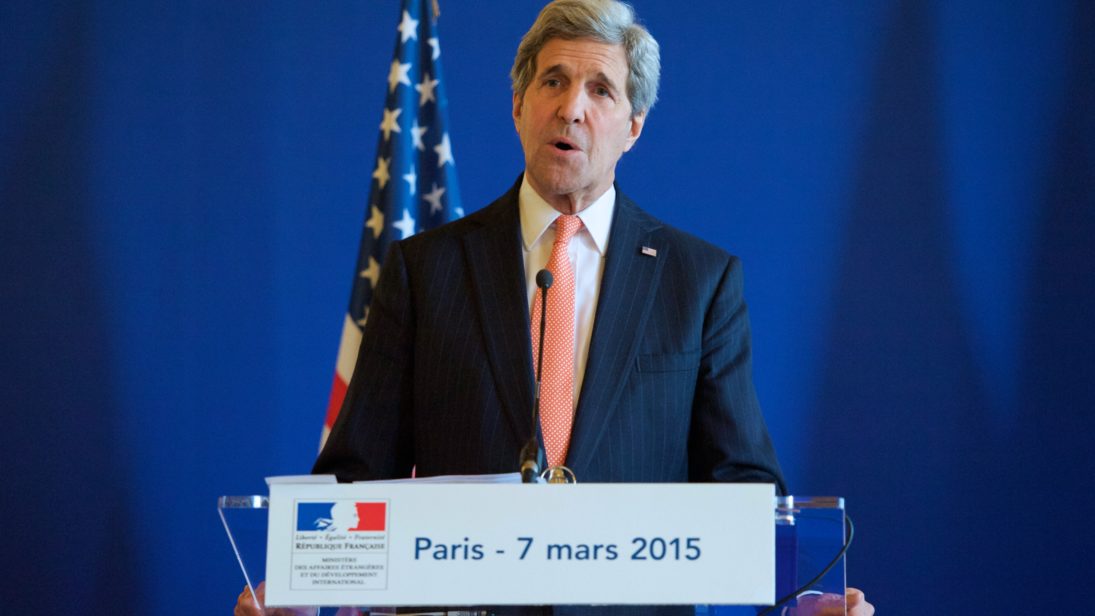
Once bitten, twice shy. This is the matter with the war weary United States. and Iran. Iran saw the atrocities of war during the Iran-Iraq War for eight years in 1980s, and has learned that military attacks are somewhat effective, but that wars are also solved through negotiations, but after great loss. In short, Iran has realized that diplomacy is the most suitable way to solve the conflicts peacefully.
If the Iran nuclear deal is finalized by the end of June, it may prove to be a positive step toward a peaceful solution of a major Middle Eastern problem. What do both countries expect from a successful deal? For the United States, the biggest achievement would be to cut down Iran’s nuclear program to a level that does not pose a threat to the international nonproliferation regime and American-Israel power in the region. For Iran, a successful deal should achieve three main goals: sanctions relief, economic stability, and maintaining credible deterrence against Israel.
The United States’ interests would be met, as well as Iran’s first two objectives, but how would the deal achieve Iran’s third important goal? If Iran’s nuclear program were scaled down to one-third by accepting additional IAEA safeguards and verification protocols, it would definitely make it more difficult for Iran to trick inspectors and run an undeclared nuclear enrichment facility.
It is not naive to believe that Iran will still be able to maintain a deterrence capability against Israel even after the deal. The deal will not eliminate Iran’s breakout capacity but will only push the threshold higher. Though IAEA inspections and verification protocols will ensure Iran’s compliance with nonproliferation measures, an element of doubt and mistrust would still remain in the memory of Israel and the United States. In the future, were the political situation to become tense, and were Iran to feel threatened by Israel or Saudi Arabia, Iran would be able to capitalize on its scientific knowledge and technical skills to pursue the weapon.
With a less anti-U.S. stance, Iran would displace Saudi Arabia’s position in the Middle East. Is Saudi Arabia really scared of Yemen, when the Iranian-backed Houthi rebels have not even entered in Saudi territory? The preemptive aerial strikes are not a mere strategy to counter threats from Houthis, but an attempt to weaken a growing Iranian influence in the region. Looking through Saudi Arabia’s lens, this military invasion in Yemen has two goals: neutralizing non-state actors and combating sectarian-inspired conflicts. A Saudi researcher, Mansour al-Bogami, argued that the Saudi Arabian government wishes to transform the political equation from a balance between state and non-state actors into a balance between the government and the opposition. However, it seems a false strategic calculation. Attacking Houthis may not establish the desired order, but would definitely strengthen Al-Qaeda and ISIS.
Secondly, the Gulf states think that any agreement between Iran and the West would certainly come at the expense of their region. The lifting of sanctions on Iranian oil exports would allow Iran to contribute up to 1.5 million barrels per day at cheaper prices. After the deal, a new political picture may emerge in which Iran, Israel, and Turkey would be major regional powers, while the Gulf states lose their influence. The unreliability of American promises to Saudi Arabia and other Gulf countries may provoke them to emphasize regional coalitions and realign the geopolitical map. Saudi Arabia would work to acquire an independent deterrence capability, which could lead to a new arms race in the Middle East and pose a threat to the nonproliferation regime.
Thirdly, Israel’s fear of an Iranian nuclear program is inflated, particularly as Israel is a non-signatory of the NPT., Israel’s demand for the total dismantlement of the civilian Iranian nuclear program does not seem to be a justified proposition. Looking at the pact’s roadmap, Iran has agreed to bring down its centrifuges to almost one-third of existing numbers, to restructure the Arak reactor to give up plutonium production, to enrich uranium only up to 3.67 % for 15 years, and to close down all other enrichment facilities except one, Natanz. It will definitely make it more difficult for Iran to pursue any secret nuclear agenda. Iran also knows very well that if it cheats, the consequences would be worst for it.
If the nuclear deal follows its agreed framework, shifts of power may lead the Middle East toward political stability in the long run. Alongside Iran, the United States would also have to work with Israel and Saudi Arabia to make them agree upon a multilateral framework to create a political balance among regional players. Otherwise, the Middle East will keep on bleeding.
***